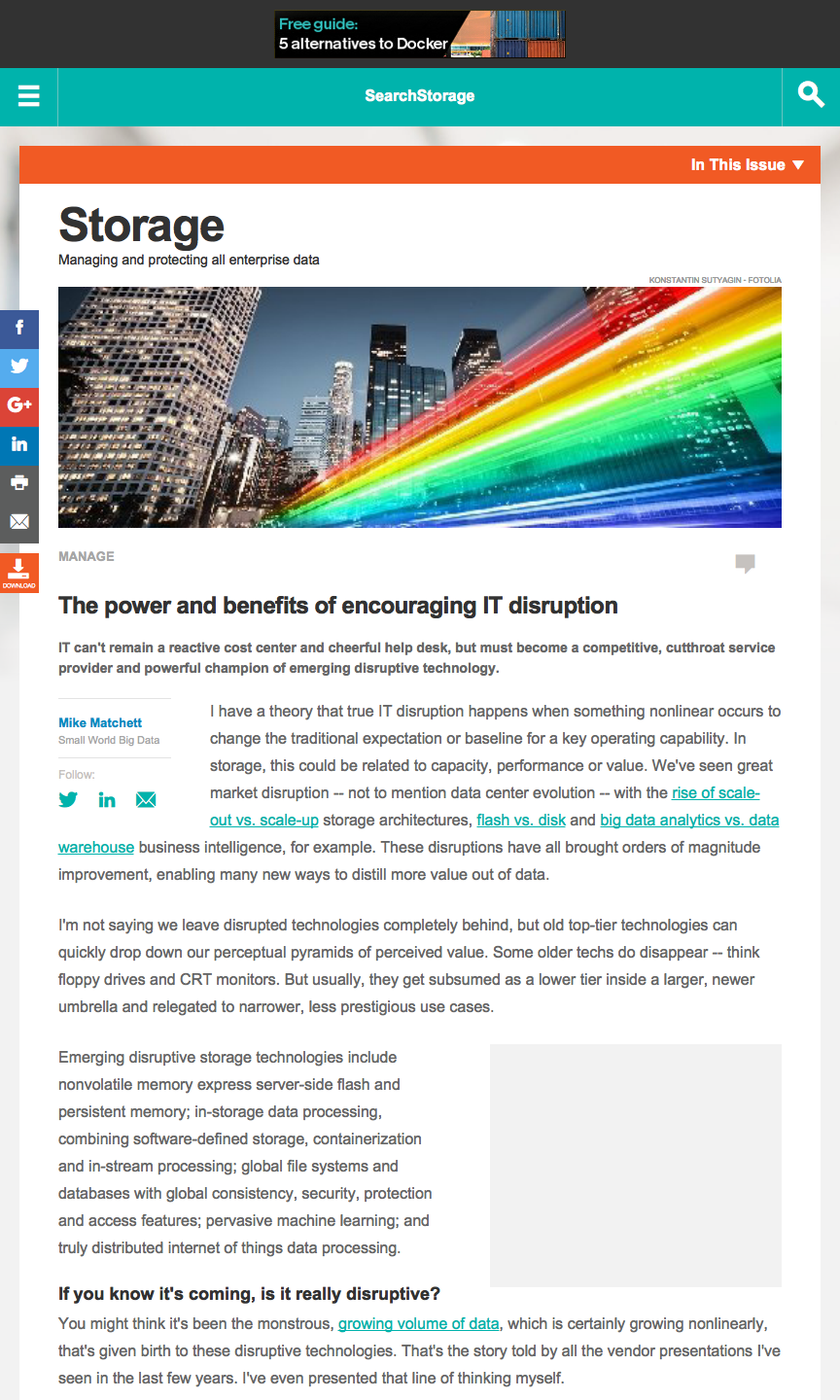The power and benefits of encouraging IT disruption

An IT industry analyst article published by SearchStorage.
 IT can’t remain a reactive cost center and cheerful help desk, but must become a competitive, cutthroat service provider and powerful champion of emerging disruptive technology.
IT can’t remain a reactive cost center and cheerful help desk, but must become a competitive, cutthroat service provider and powerful champion of emerging disruptive technology.
Mike Matchett
Small World Big Data
I have a theory that true IT disruption happens when something nonlinear occurs to change the traditional expectation or baseline for a key operating capability. In storage, this could be related to capacity, performance or value. We’ve seen great market disruption — not to mention data center evolution — with the rise of scale-out vs. scale-up storage architectures, flash vs. disk and big data analytics vs. data warehouse business intelligence, for example. These disruptions have all brought orders of magnitude improvement, enabling many new ways to distill more value out of data.
I’m not saying we leave disrupted technologies completely behind, but old top-tier technologies can quickly drop down our perceptual pyramids of perceived value. Some older techs do disappear — think floppy drives and CRT monitors. But usually, they get subsumed as a lower tier inside a larger, newer umbrella and relegated to narrower, less prestigious use cases.
Emerging disruptive storage technologies include nonvolatile memory express server-side flash and persistent memory; in-storage data processing, combining software-defined storage, containerization and in-stream processing; global file systems and databases with global consistency, security, protection and access features; pervasive machine learning; and truly distributed internet of things data processing.
If you know it’s coming, is it really disruptive?
You might think it’s been the monstrous, growing volume of data, which is certainly growing non-linearly, that’s given birth to these disruptive technologies. That’s the story told by all the vendor presentations I’ve seen in the last few years. I’ve even presented that line of thinking myself.
Successful disruption requires early adopters be willing to take some risks.
The problem with that interpretation is that it makes the storage industry look reactive instead of proactive. And it also makes them look like heroes or at least paragons of product management, figuring out exactly what people need and delivering it just in time to save IT from certain disaster.
If we’re honest, the truth is more likely that newer generations of storage technologies let us retain massively growing volumes of data, access that data faster and increase the ROI for keeping and analyzing ever bigger data sets. In other words, it’s new technology that enables more data, not the fact of more data causing new technology. Creating disruptive technology may be as much a matter of luck as intentional design.
Disruptive technologies arise out of vendors serving our competitive natures…(read the complete as-published article there)
